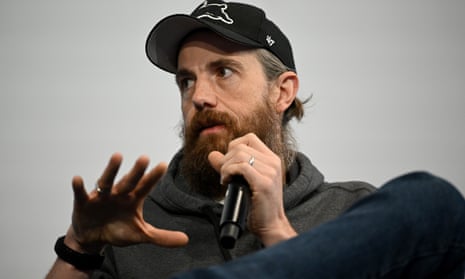As corporate reports go, the title of Aussie tech firm Atlassian’s guide for other companies to cut their greenhouse gas emissions is as direct and flavoursome as they come: “Don’t F&*! The Planet.”
The firm, founded by Australians Mike Cannon-Brookes and Scott Farquhar, says it is already running its operations on 100% renewable electricity and has a “science-based target” to reach net zero emissions no later than 2040.
But the guide lays out the company’s steps in adopting its target and warns companies that the issue of using offsets to meet targets “is facing an enormous amount of blowback”.
The guide says any company that commits to a science-based target “can’t make net zero claims” until they have cut their emissions directly by 90%, with carbon offsets used to make up the balance.
One analysis says about one-third of the world’s biggest publicly traded companies have net zero goals. A UN expert group has said offsets should only be used once companies have worked to cut their direct emissions.
Atlassian head of sustainability, Jess Hyman, said: “It’s not enough for us to move on our own, we have to do it in lockstep with other big business.
“We saw the business risk and, frankly, the very real opportunity side of going after it. We need to be really clear that this is about long-term success.”
Consumers had high expectations and whole supply chains also needed to be engaged to bring emissions down.
Committing to #ClimateAction can become overwhelming. So we’re sharing our net-zero journey in a resource called “Don’t #@!% the Planet.” 🌎
— Atlassian (@Atlassian) May 23, 2023
Our goal is to help teams navigate the ins and outs that technical step-by-step guides don’t cover. Get started: https://t.co/wPGzFhGFKE pic.twitter.com/pmdrlxhWgb
Worldwide, Hyman said regulators were making it clear that climate disclosures will be a requirement of doing business.
She said: “It’s become a question of: how quick are you going to push, are you going to capture first-mover advantage?
“The pressure is just too great at this point, as we near the point of peak emissions, to kick the can down the road.”
Atlassian was the first large Australian tech firm to join RE100 in 2019, a global group of companies aiming for 100% renewable energy use.
after newsletter promotion
There is a need to set “ruthless” priorities, which for Atlassian meant starting with a science-based target, Hyman said.
Atlassian’s new Sydney headquarters will be in the world’s tallest “hybrid timber tower” that claims to have 50% less CO2 emissions related to construction than conventional towers.
As more people work from home, the company’s emissions must also take other locations into account.
The guide tracks Atlassian’s progress and draws on more than 100 conversations with peer companies, including Australia’s Canva and other tech firms balancing rapid growth and net zero goals.
“We’ve been talking about how these goals are completely impossible alone and possible together,” Hyman said.
But there’s no one-size-fits-all approach as every company is urged to understand their own emissions profile.
She recommended starting with a target for emissions reduction, getting it independently checked, and then reporting on progress.
“And I caution people from setting a goal if they don’t have a plan to really do the work. You have to do both and you need to anticipate that your stakeholders are going to hold you to it.”
